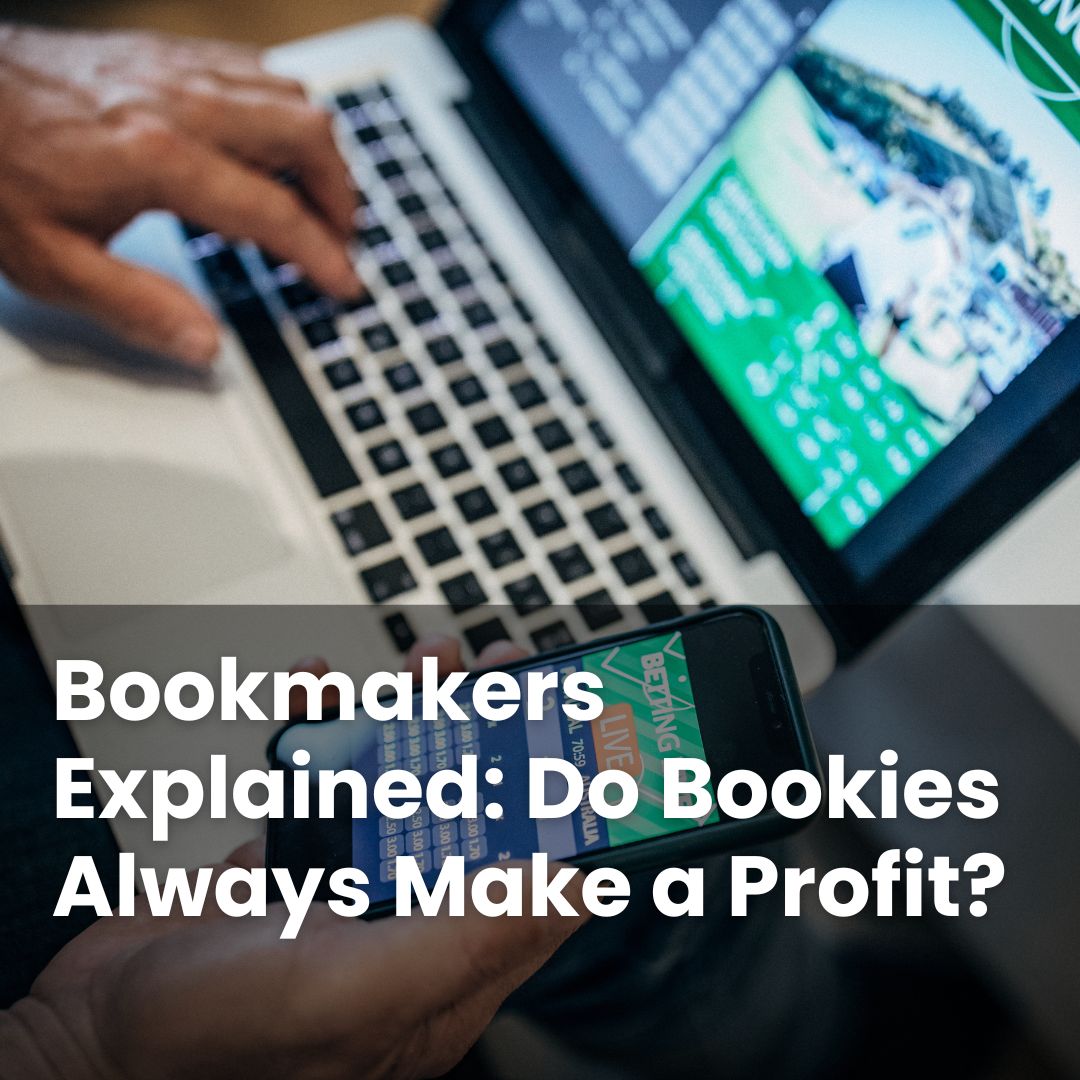Many people wonder if bookmakers always come out on top. The way bookies work is not always obvious, and it can feel as if they consistently have the advantage. But is that really how things play out?
This blog post breaks down how bookmakers operate in straightforward terms. You’ll get an initial glimpse of what makes a bookie’s business tick, how odds come about, and what terms like margins and overround roughly mean.
Further on, the workings behind these concepts are explained in more detail. You will also get an idea about whether bookmakers ever end up paying out more than they take in and how promotions like free bets might impact the numbers. Read on to learn more.
How Do Bookmakers Make Money?
Bookmakers set odds in a way that the combined chances of all possible outcomes add up to a figure above 100 percent. This extra amount provides a buffer. Across many events, this means the total payouts tend to be less than the total amounts wagered.
This buffer is built into the odds themselves, rather than appearing as a separate fee. It helps ensure the business stays in the black over time. Bookmakers use data and expert teams to monitor how people are betting, and they often adjust the odds to encourage a more even spread of bets across all outcomes.
Promotions like free bets and enhanced odds might reduce revenue for a short while on particular offers, but they fit into a wider plan designed to keep things working smoothly.
With this cushion doing much of the work, is it true that bookmakers always come out ahead on every event?
Do Bookies Always Make Money?
Not quite. It’s possible for bookmakers to lose money on certain individual events. If a lot of people back the winning side, the amount paid out could exceed what was taken in on that market.
What helps keep the whole operation running well is the large scale of betting. Bookmakers take wagers on countless outcomes spanning many sports and times, maintaining that buffer consistently. Over numerous events, the amounts won and lost tend to balance out.
So, a particularly good weekend for those placing bets doesn’t necessarily cause trouble for the bookmaker, nor does a losing weekend for players automatically mean the bookmaker has done especially well. It’s the bigger picture, with steady pricing and volume, that shapes the overall result.
To understand how this buffer is created and maintained, it helps to look more closely at what betting margins and overround actually represent.
Discover The Best Online Casinos
Browse our list of top-recommended casino sites, read reviews from real players & be the first to get access to the latest casino bonuses
What Are Betting Margins and Overround?
A betting margin refers to the difference between the true chance of an outcome and the odds offered by the bookmaker. Overround is the total implied probability when adding up all outcomes based on the odds. If this total is above 100 percent, the extra portion is the bookmaker’s margin.
For example, imagine a two-outcome event where both outcomes have odds that suggest about a 52.4 percent chance each. Added together, this is roughly 104.8 percent. That extra 4.8 percent above 100 shows the built-in advantage across the market.
In markets with three outcomes, the same idea applies. If the combined implied chances reach around 105 percent, that extra five percent represents the margin. These figures shift as odds change, but the principle remains the same.
This margin helps the bookmaker cover various expenses and fluctuations, and it forms the backbone of the business model rather than predicting any particular outcome.
If the numbers are tilted in this way, why do the odds generally lean in the bookmaker’s favour?
Why Do Odds Favour the Bookmaker?
Odds are often set slightly lower than the pure chance of an outcome might suggest, giving the bookmaker a structural edge. This isn’t guesswork; it comes from data, models, and experience. Prices also move to respond to betting patterns, ensuring the balance remains.
When one side attracts too much backing, bookmakers can shorten its odds, lengthen others, restrict stakes, or even hedge bets with other firms. These measures help keep potential payouts manageable.
This doesn’t imply every bet is a bad proposition or that players can’t come out ahead, but overall, the pricing is intended to ensure the bookmaker’s margin over a large number of bets and markets.
Even so, there are times when bookmakers might find themselves paying out more than expected.
Can Bookmakers Ever Lose?
Yes, bookmakers can lose money on individual events. For example, if favourites keep winning on a busy day, or if a heavily backed special bet comes through, payouts may exceed the amounts taken in.
When a large number of bets land on the same outcome, such as popular accumulators or widely advertised price boosts, it can lead to higher-than-usual payout levels. To deal with this, well-organised firms adjust odds, limit exposure on certain outcomes, and balance their positions across a wide spread of markets and timeframes.
Losses on specific events are a normal part of how things play out over time. What matters is that, across all markets taken together, the combined effect of pricing margins, the volume of bets, and internal controls helps maintain a steady picture overall.
Promotions can add further layers to this process, which is why they are typically offered with carefully outlined terms.
How Do Promotions and Free Bets Affect Profits?
Promotions and free bets aim to bring in and keep customers. Common offers include free bet credits, matching deposits, and enhanced prices on selected bets. While these cost money, especially if many qualifying bets win, terms and conditions are set to help manage the expense.
These conditions may include minimum odds, caps on stakes, expiry periods, or wagering requirements, guiding how promotional funds are used. This helps keep spending in check.
From the business side, the goal is that the value from new and returning customers exceeds the cost of offers. These promotions don’t change how odds are priced fundamentally. The margin remains part of the core betting prices, and promotional usage is monitored to stay within budget.
If you’re thinking about taking up an offer, it’s wise to check the terms carefully and make sure it suits your own limits. Knowing how margins, odds, and promotions interact can help clarify why bookmakers might occasionally lose on some days but still operate successfully overall.





